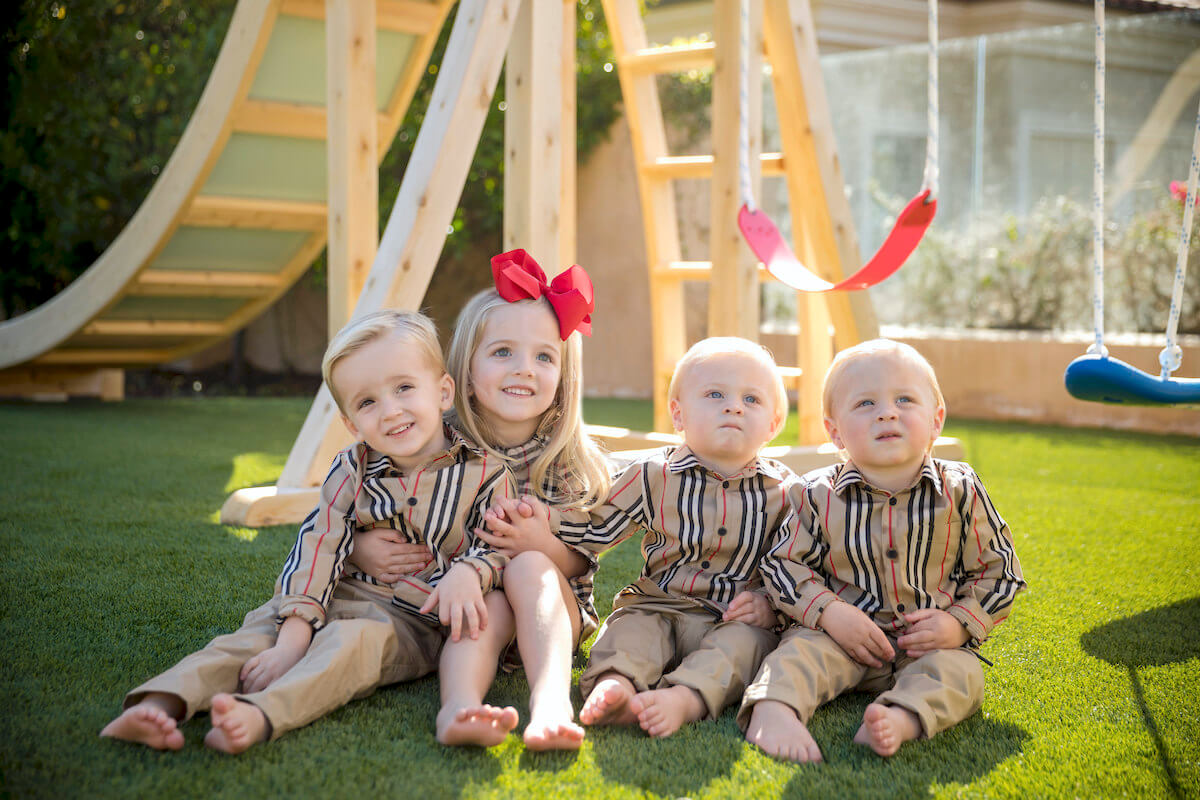
Teaching our children respect is perhaps one of the most important things we can do as they grow and enter the world of adulthood. If for any reason we fail to teach them how to respect others, it's safe to say they will probably face a challenging future on so many levels.
With LOVE at the center of a happy, meaningful, and fulfilling life, I think it's all rooted in respect. It's about respecting ourselves, others, and the process of life itself.
Sean and I work extremely hard to teach our children what it means to be respectful. So far, I'm noticing that Kensington and Sean Jr. are absorbing what it means and we hope they will apply the lessons they're learning as they engage in life as they grow.
The following are ways that we have consciously worked to inspire our kids to practice the art of respect:
#1 - Show Respect to Them
First and foremost, we need to show our children what respect is. They are like sponges and are so very observant of our actions — even when they're newborns.
As they watch, they learn and begin to emulate us. So, we as parents need to constantly show them how to be courteous to others, how to follow rules, and how to be gentle with other children and animals.
Through our actions, we can show they how to be kind and patient with the elderly and the disabled. Show them how to nurture and care for babies. Illustrate how to respect the earth. Show them how to be gracious and use manners, such as "please" and "thank you."
Reveal to them that no matter what, we need to treat others with kindness and love.
#2 - Explain What Respect Is
When our children are old enough to understand, we need to communicate and explain what it means to be respectful and how there are different ways to show respect to others.
We accomplish this at home by discussing everyday situations and challenges with them that they will encounter and how they can navigate through them in the most respectful manner possible.
For example, if the kids are getting ready for a playdate and we've noticed in the past they could have been more respectful to a friend, we'll explain (in the most positive, loving way possible) how they can be more loving and kind. We provide specifics as to what we've seen in the past and how they can make adjustments.
As we explain, I love to see Kensington and Sean Jr. processing the advice we're offering, and it seems to make a beautiful difference when all of the kids come together for a day of fun.
We need to remind our children that they need to be aware of their behavior in different settings such as church, school, a friend's house, restaurant, or even just at home in their family room. They need to understand the importance of being respectful to their peers, friends, family, and elders around them.
We can make it clear that disrespect is not tolerated. We also need to teach our children that we need to be respectful to every person we encounter, no matter their age, color, or gender.
#3 - Praise Them When They Are Respectful
Sean and I always try to praise our children for good behavior. We give them a mix of affection, positive words, and small treats as reinforcement to cheer them on.
For example, we'll give them a big hug, kiss, or high five and are amazed at what a difference these sweet gestures can do to inspire them to be more respectful and loving.
As parents, I think we need to make a big deal about good behavior because it gives them an instant confidence boost. Positive encouragement goes a long why, and I notice that our children are more likely to repeat good behavior when they are praised and rewarded.
They also express to me that it feels good to be kind and courteous to others! When they make these sorts of mental connections to their behaviors, it means everything to us as parents.
Last Thoughts
The art of respect is something that I think we all need to practice and think about on a daily basis. Every night before we all go to bed, may we all dare to take an accounting of how we've treated others and make adjustments the next day.
And of course, if we've failed others, be bold enough to ask for forgiveness if needed. This is another thing I discuss with my kids — the power of an apology. If we can all deeply care about the hearts of those around us, our children will see it, and our communities will be such better places as result.





